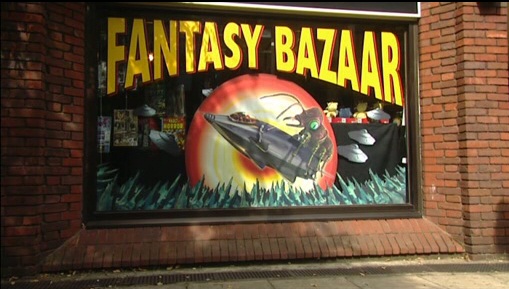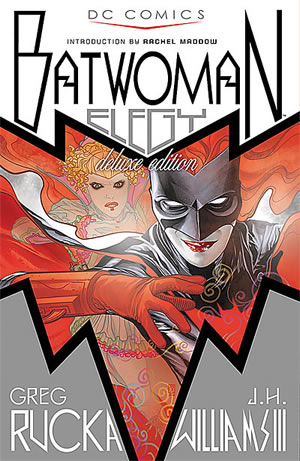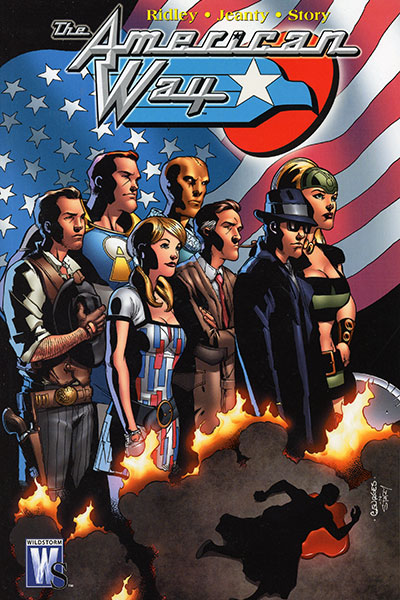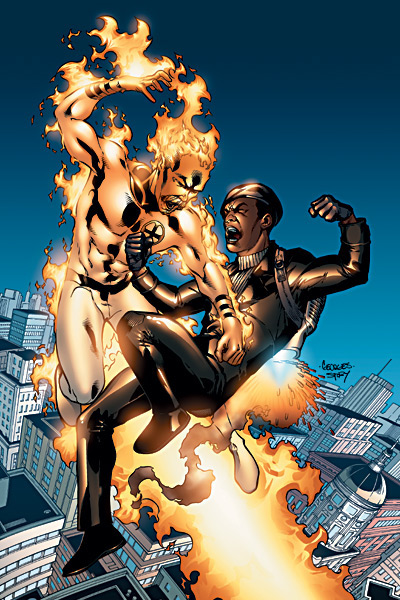Those who know me well (Hi mom!) can tell you that I’m almost obsessively enthusiastic about the things I love. I’ll research every last detail and have a well of “useless” information in my head that can sometimes make me sound like a bit of a stalker in polite conversation: “No, coworker, Aziz Ansari grew up in North Carolina, Arj Barker is from the Bay Area.” (This conversation actually happened recently).
I’ve been through it all with oddly specific interests: indie and college rock from 1983-2004, Troma Films, the books of Kurt Vonnegut, obscure BBC shows with a non-consecutive run of about 6-8 episodes. Yet in my scary, photographic mind I didn’t get geeky about comic books, until recently.
I’d read and loved the odd indie here or there: Chris Ware, Daniel Clowes, Adrian Tomine – the “Big Guns” of indie comics, if you will. In fact, I proudly own the McSweeney’s Quarterly issue about comix (that’s comix with an “x”, not a “cs”) that Chris Ware curated. My super beat-up copy of Ghost World has traveled with me from high school, to university, to San Francisco. For some reason, though, I never gave Comics as a genre a shot beyond that, never got into Marvel or DC. It wasn’t because I considered it some sort of “geek boy” domain. In fact, I’m the kind of girl that will saunter up to a group of dudes and ask, “Oy! What’re we readin’ then?” (Ok, maybe not like that. I’m more British in my head than I actually am in real life, which is not at all). Other interests to obsess about just got in the way.
And then I started dating a Comic Book Guy, who would let me borrow his books. It started with Scott Pilgrim. (HOW HAD I NEVER READ SCOTT PILGRIM!?) Phonogram, a series about BritPop kids who make magic with music, followed, clearly written with me in mind. Most recently, I was handed Batwoman: Elegy. Greg Rucka’s writing and J.H. Williams III’s art hooked me BIG TIME.
So here we are, a girl who never really got into comics has suddenly fallen in love with them. In the spirit of sharing my journey into the world of comics, this post introduces a weekly series where I will talk about what I’m reading, as I go about learning and finding new favorites. Maybe you’ve never really gotten into comics, or maybe you’re looking for something new? Either way, I’m here to provide you with a noob‘s experience. We’ll be, of course, looking at the comics I read through various -isms and inclusivity, but there MAY be a discussion of the most superfluous and silly “Girl Pose” in each book. So come along with me on this wondrous journey! To get the ball rolling, let’s start with the book I literally just finished a few days ago – the trade paperback of The American Way.
The American Way is set at the beginning of JFK’s presidency and right in the midst of the Civil Rights movement. It’s 1961, and the United States has spent the past few decades under the protection of the Civil Defense Corps and the Southern Defense Corps: an elite team of superheroes stationed in Washington D.C. and Atlanta, GA who protect America and her people from communism, nuclear missiles, and the occasional alien attack.
Wes Chatham, a Manhattan Ad Man, gets called in by his old school buddy Bobby Kennedy to be the new brain on the CDC team, where he finds out that these “gods”, “super humans” and “aliens” are really just paid actors who have been given gene therapy. The powers are real, but the situations they diffuse are staged by the government to keep Americans believing in something bigger than themselves.
When Old Glory, the great symbol of patriotism and American Life, bites the dust mid-fight (superheroes can still have heart attacks!), Wes Chatham uses his influence on the team to bring in a new kind of hero. He convinces the team that in order to foster race relations what they need is a Black man to be The New American. They recruit Jason Fisher, a student and Freedom Rider, and give him super strength and a jetpack. They also give him a helmet, to keep his identity hidden until they believe that the public is ready for it.
As it turns out, it isn’t the public as much as the other superheroes they should worry about, specifically the Southern Defense Corps. While not all of the SDC members are racists, and not all of the CDC are progressive, it is SDC member Southern Cross who really hates the idea of “working with a colored” and the spirit of the teams begins to disintegrate, making them weaker than ever. Attempts by Wes and Chet to re-solidify the team only lead to tragedy, further dividing the team and putting everyone at risk of destruction.
Towards the end of the book, Wes offers The New American (Jason) asylum in Washington, saying, “Stay here – if you’re in Washington with us, we can help you!” Jason declines, saying, “Man, you Liberals crack me up. What makes you think we need help?”
Wes reflects in his final narration: “Yeah. What makes me think that ‘they’ need our help? Pride? Ego? The soft bigotry I own despite my progressiveness?” How about that, a white man, checking his privilege at the closing of the book? That is such a rare treat, to see a message we can firmly get behind.
The American Way is a pretty long read, very reliant on dialogue, but the story is absolutely riveting and moves along at a good pace. The art, penciled by Georges Jeanty and inked by Karl Story and Ray Snyder, is beautiful. One thing that I want to point out is the language throughout the story. Because it is addressing Civil Rights, especially in the context of Southern acceptance, you’re going to run into quite a bit of offensive dialogue between characters – both racist and sexist. Additionally, the women of the CDC and SDC – Freya, Amber Waves, and Ole’ Miss – are vastly outnumbered by their male counterparts and are constantly being undermined and spoken down to. Again, it’s the language and thought process of the era – much like that of Mad Men – but it doesn’t make it any less upsetting.
All in all, I greatly enjoyed this book, with its blend of American history and the superhero mythos, and hope you will too. Next week: we talk Warren Ellis’ Black Summer.






